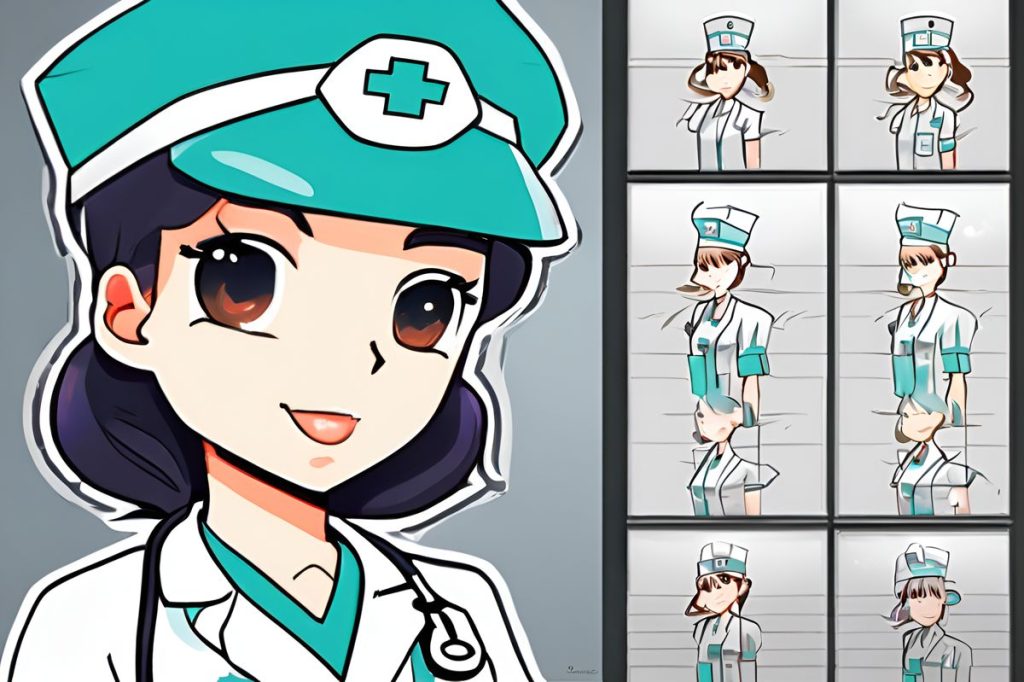The looming nurse shortage in Cyprus has put clinics at risk of suspending operations, with an estimated deficit of 450 to 500 nurses. Proposed solutions include recruiting from third countries and incentivizing local students to pursue nursing, while ensuring training standards for patient safety and care.
What is the cause of the nurse shortage in Cyprus and what solutions are being proposed?
Cyprus is facing a nurse shortage due to a high deficit of nurses, with an estimated gap of 450 to 500. Solutions proposed include recruiting nurses from third countries and offering incentives to encourage local students to pursue nursing, while ensuring appropriate training standards to maintain patient safety and care.
The Escalating Nursing Crisis in Cyprus
The healthcare system in Cyprus faces a dire situation as it grapples with a critical shortage of nurses. According to the local employers’ and industrialists’ federation (Oev), the deficit has reached a point where clinics may have to suspend their operations. This shortage is not an isolated problem but a challenge echoed across the European Union. Cyprus, however, has felt the impact keenly, with an estimated gap of 450 to 500 nurses, a number exacerbated by pending retirements.
Despite the presence of approximately 400 nursing students on the island, with 120 poised to graduate this year, there remains a significant hurdle. A large proportion of these students are not EU citizens, which impedes their immediate integration into the workforce due to regulatory constraints, including language proficiency requirements.
Exploring Solutions for Sustainable Healthcare
The pressing need for a solution to the nursing shortage has led to proactive suggestions from various stakeholders. One potential avenue highlighted by the private hospitals’ association (Pasin) is the recruitment of nurses from third countries. This strategy would leverage the expertise of third-country nationals already studying nursing in Cyprus. The proposal aims to expedite the process of integrating these individuals into the local healthcare system, thereby alleviating the staffing shortfall.
Marios Karaiskakis, chairman of Pasin, emphasized the urgency of the situation. Hospitals are already feeling the strain, struggling to maintain adequate staffing levels. The proposal includes incentives to encourage young Cypriots to pursue nursing careers and legislative measures to ensure appropriate nurse-to-patient ratios in diverse healthcare settings.
Education and Professional Standards at a Crossroads
At the heart of the nursing profession lies the commitment to patient safety and care, upheld by rigorous training and education. Recent discussions around reducing the training hours for nurses in Cyprus to 3,800 have sparked concern. Such a reduction would fall short of the EU’s minimum requirement of 4,600 hours, raising alarms about the potential compromise of patient safety and the violation of nurses’ rights.
The debate has broader implications, as the mutual recognition of nursing qualifications within the EU is predicated on meeting established standards. Deviating from these norms could jeopardize Cypriot nurses’ freedom of movement within the EU and, as research indicates, lead to increased patient mortality rates.
A Call to Action for Healthcare Excellence
The overarching message from industry professionals and associations is clear: the nursing shortage in Cyprus must be addressed with immediacy and resolve. The future of healthcare in Cyprus, especially in light of the lessons learned from recent global health crises, rests on solidifying the pillars of nursing education, professional development, and equitable workforce distribution. Only through such measures can Cyprus hope to be better equipped for any future challenges that may arise.
Why is Cyprus facing a nurse shortage and what is the impact on healthcare facilities?
Cyprus is experiencing a nurse shortage with an estimated deficit of 450 to 500 nurses, potentially leading to clinics suspending operations. The impact is significant as healthcare facilities struggle to maintain adequate staffing levels, compromising patient care and safety.
What are some proposed solutions to address the nurse shortage in Cyprus?
Proposed solutions include recruiting nurses from third countries who are already studying nursing in Cyprus, offering incentives to local students to pursue nursing careers, and implementing legislative measures to ensure appropriate nurse-to-patient ratios in healthcare settings.
Why is there concern about reducing the training hours for nurses in Cyprus?
Reducing the training hours for nurses in Cyprus below the EU minimum requirement of 4,600 hours raises concerns about patient safety, violation of nurses’ rights, and potential barriers to the mutual recognition of nursing qualifications within the EU. Deviating from established standards could also lead to increased patient mortality rates.
What is the importance of addressing the nursing shortage in Cyprus for the future of healthcare in the country?
Addressing the nursing shortage in Cyprus is crucial for the future of healthcare in the country, especially in light of recent global health crises. Solidifying nursing education, professional development, and workforce distribution is key to ensuring a resilient healthcare system that can effectively respond to any challenges that may arise.

